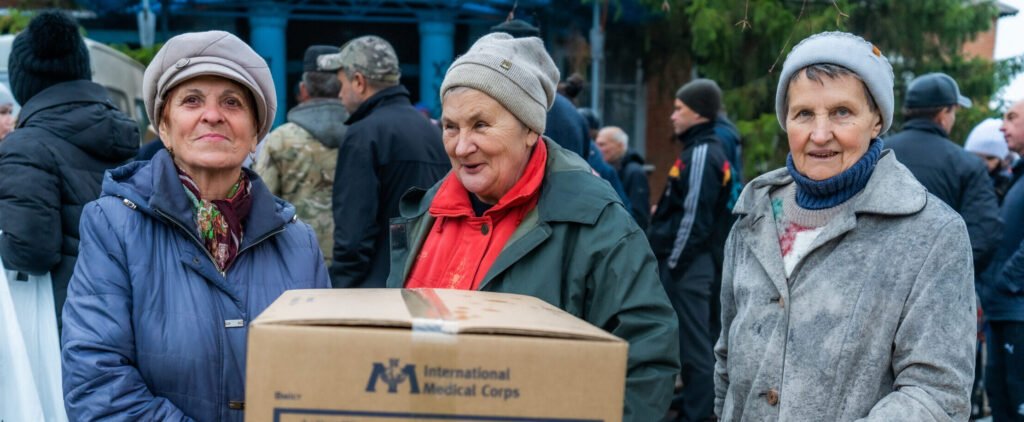Video
Emergency Care Training
We have partnered with the Harvard Humanitarian Initiative to provide training to Ukrainian healthcare providers and others in trauma care and mass-casualty management, including chemical, biological, radiological, nuclear and explosive (CBRNE) hazards.
Video
60 Minutes Goes Inside Ukraine
Journalist Scott Pelley talks with our Director of Emergency Response, Dr. John Roberts, about how International Medical Corps is delivering vital healthcare supplies and services to people affected by the war in Ukraine, as well as with staff members who escaped the fighting in Mariupol.
